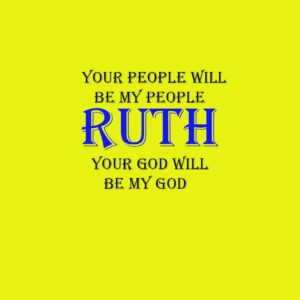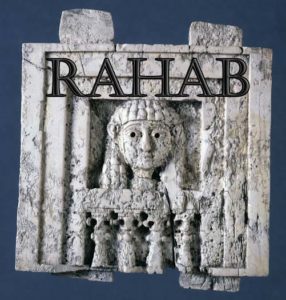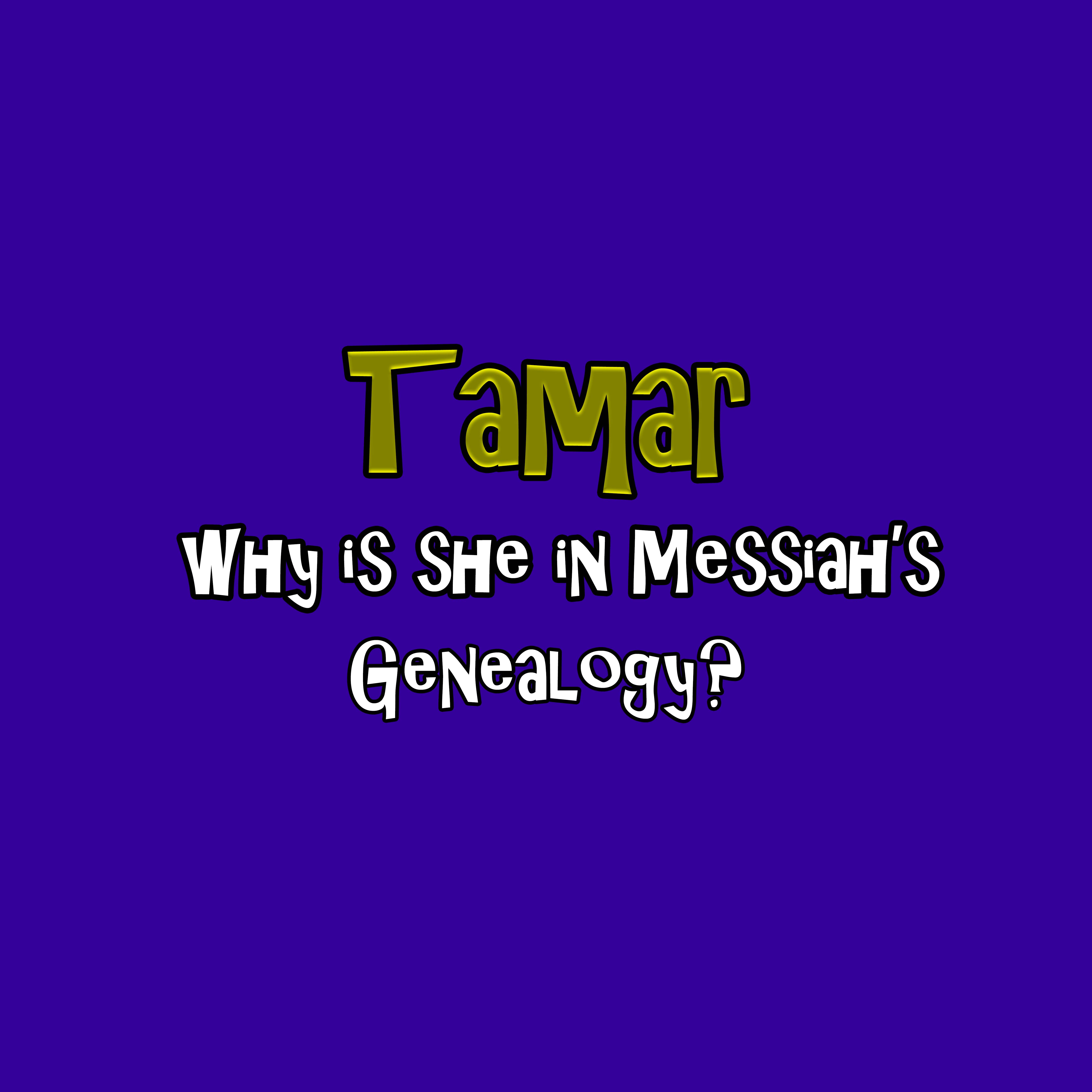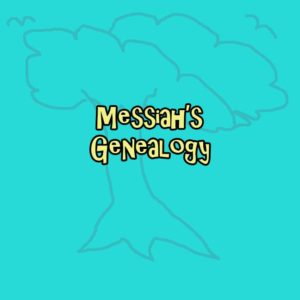Episode 55: One Big Family/One Big God
Just like with Adam and Eve and their kids, the Bible is telling us again that we are one big human family with one big God, but why was that story so important for Moses to tell and why is there no other story like it in ancient history?
If you can’t see the podcast player, click here.
Hi! I’m Miss Tyler and welcome to another episode of Context for Kids where I teach you guys stuff most adults don’t even know. If this is your first time hearing or if you have missed anything, you can find all the episodes archived at contextforkids.podbean.com, which has them downloadable, or at contextforkids.com, where I have transcripts for readers or on my Context for Kids YouTube channel.
(Parents, all Scripture comes from the CSB this week, the Christian Standard Bible, and we will mostly be in Genesis 9 and 10)
Noah’s sons who came out of the ark were Shem, Ham, and Japheth. Ham was the father of Canaan. These three were Noah’s sons, and from them the whole earth was populated. (Gen 9:18-19) These are the family records of Noah’s sons, Shem, Ham, and Japheth. They also had sons after the flood. (Gen 10:1) These are the clans of Noah’s sons, according to their family records, in their nations. The nations on earth spread out from these after the flood. (Gen 10:32)
Genesis chapter ten is just plain weird. It is, and so is chapter eleven because chapter eleven probably happens before chapter ten. But that’s not so strange in the Bible. In the ancient world, they weren’t as fussy about talking about everything in order and if you ever read Jeremiah, it’s like the guy is zooming back and forth in a time machine! And when the Gospel writers wrote about Jesus, they put events in different orders based on the story they were each telling. Remember that they came first—not us. And the Bible was written to them and by them in a way that would make the most sense for them. They weren’t wasting their time thinking, “Hmmm…people in thousands of years are going to want this to be more scientific and they are going to want everything in order and they are going to really want us to explain all this stuff that makes perfect sense to us…” If you listened to my very first broadcast, about what context is and why it is important, you understand this already. Knowing context, which is the stuff that is normal to some people but not normal to others, solves a lot of problems when people from different backgrounds are trying to talk to each other and when it is important to be understood!
At the end of chapter nine, we have one family and one God. By the end of chapter eleven, that won’t be even remotely true anymore. And don’t worry, I am not going to read all those long genealogies to you—mostly because I don’t want to have to pronounce some of those names! Genealogies are very important in the Bible—genealogies are the story of a family tree. They tell you who someone’s parents and grandparents and great-grandparents are. If you remember our past lessons then maybe you remember the Hebrew word, toledot (toe-leh-dote) because it gets mentioned a lot in Genesis one through eleven. And what’s really weird is that, for a book that talks so much about the children of Abraham, he doesn’t even show up until the very end of chapter eleven. So far, Moses has been telling the story of all the world being in one place, and about God dealing with the whole world but that is about to change. At the end of chapter eleven, God is going to choose someone to begin His great plan to rescue the world and everyone and everything in it. And it will start in the most unlikely of ways but that’s generally how God likes to do things. When we think He will choose one person, He chooses another. When we think He will do one thing, He does another. When we want Him to do this, He does that. God is good, but He isn’t very predictable! I guess that if we could figure out what He was going to do ahead of time, it would mean He is too small and predictable to be very good. And there are plenty of things I have thought He should do that I am glad now He didn’t do!
By the end of Chapter 11, we see that people have scattered all over the world, but in chapter ten, Moses gives lists of what nations came from which son of Noah—seventy of them. Some of these nations we know because we have the ancient names from other writings besides the Bible, and some we know because of the Bible—like the ancient name of Egypt is Mitzraim (Mitts-rah-yeem) but we’ll talk about the others as we come to them.
First, we have a list of Japheth’s sons—or at least the nations that descended from him, or maybe a mixture. They haven’t always done family trees that way we do now. They would skip over people (like in the Gospel of Matthew) and names might be different because they want to have a certain number of generations because the numbers told them stories in ways that we don’t understand anymore. Did you know they believed that Adam had everyone who would ever be born in his body??? And so, they could say that Adam was the father of Jesus if they wanted and it would be perfectly true. In Jesus’s day, the Jewish people called Abraham their father even though he lived thousands of years before. It’s just a way of looking at things, even though we don’t say that now. People in ancient times were actually much more concerned about the past than about the future—well, except for survival issues. They were concerned about the rains falling at the right time and having a good harvest, but they were what is called a “backward-facing” people in that they believed that it was better to look to the past and to see what was done by their ancestors than it was to be focused on the future. In America, the future is about all we care about so that is very strange to us and we aren’t afraid to live very differently than our ancestors did.
So, it was very important for Moses’s audience to hear that, at one point, they were all one family and that God was the god of everyone and Noah’s covenant wasn’t just for them and that they weren’t a different kind of human from everyone else in the world. Moses is going to show them that people were chosen by God—first Shem and then one of his sons and on down the line until they got to Abraham and God chose Him so that the Messiah, Jesus would be born. It never says that Shem was better than Japheth—and it never says anything good or bad about any of his descendants, no reason why they were chosen. We don’t know if they were the oldest or youngest. And God is like that—sometimes He will even take the worst sort of person and turn them around! All we do know is that by the time God calls Abraham, Abraham’s family are idol worshipers. So probably Abraham was as well. God loves a challenge. And I know there are a lot of legends and stuff about Abraham alone being faithful to God before God spoke to him, but they are just stories, the Bible says nothing of the sort.
But, as I was saying before I got distracted, Moses claimed that Japheth’s sons mostly went north into modern day Europe, Turkey, and northern Asia and I think all us folks whose ancestors came from there ended up white because it is so stinking cold and rainy and we didn’t get nearly enough sunshine and we bleached out and we burn in the sun and especially people like me because I am like 40% Irish and we don’t get along well with mister sun. And here’s the deal about the sons of Japheth—they aren’t all that important to the Bible story. They really aren’t. Oh sure, the Greeks and the Romans appear all over the New Testament history because they had conquered Judea and Galilee and the surrounding areas, and they had to be converted after Jesus rose from the dead—but even that didn’t happen until at least ten years later. His descendants were all pagans but sometimes you will hear about a city or a nation named after one of Japheth’s descendants, like Tarshish, where Jonah tried to sail away to and is probably in Spain. Or Kittim, which is the Island of Cyprus in the Mediterranean sea. Madai became the Medes, who we see in the book of Daniel. Javan became the Greeks. Ashkenaz became the Armenians we know today. As for the rest, we can only guess because those were names that were familiar to Moses over three thousand years ago!
And you might ask, before we go any farther, how did Moses know all the names of these nations? As we will find out later, Moses was raised in the palace of the Pharaoh of Egypt (their king) and from the time he was very young, he would have seen people bringing tribute (gifts) to Pharaoh from all over the known world. As he grew up and was educated, he would learn all about these nations who had to give these yearly gifts to Pharoah, or else. He probably had objects in his home from all over—until he had to leave. Moses was a very educated man. He might have been one of the only Hebrews who could read because the rest of his people were being forced to work as slaves. And it is very important that Moses put this together because it is the only genealogy in the history of the world like it—but I will explain that more later.
Next, Moses tells us about where the sons of Ham ended up—now, these nations we know much better because so many of them show up in the Bible! Cush was what they called northeast Africa—the area that is now Ethiopia and the countries surrounding it. Have you heard of the Queen of Sheba who came to test Solomon’s wisdom and brought gifts from her magnificent kingdom? Sheba was in that area too. Havilah, where Genesis tells us the gold is very good, and Arabia, where Mt Sinai is! And then he mentions Mitzraim—the ancient name for Egypt. Everyone knows about Egypt because it was the world’s first superpower, the world’s first real empire, they built the pyramids, they had amazing medical knowledge (they could even do eye surgery!), they had clocks and calendars and a written language and paper and ink and so many other things. Put became the Libyans, to the west of Egypt. And of course, the Canaanites–who settled in the Promised Land which was called Canaan until it was renamed after Jacob, who was also called Israel. Egypt is like one of the power players in the Bible—we are going to see them over and over again. That’s where people will go when there is a famine (meaning no food), or when they are in danger (like Jesus and Jeroboam, who was running from King Solomon), or when they want help fighting their enemies. In fact, besides Jesus’s family, and Jacob’s family, who were actually told to go there—everyone else went in order to get help that they believed God wasn’t going to give them. And it got them into a lot of trouble because God wanted them to depend on Him. Like the places where Japheth’s descendants ended up, Africa was also full of idols because that was what all the world was going after in those days.
There is one more descendant of Ham that we will be discussing, but we will do it next week because he is special. That man is Nimrod and he is so cool to study because what the Bible actually says about him only makes sense because of the archaeology over the last two centuries. Before that. All people could do was guess and write legends about him. We don’t know exactly who he was, but the way he is described is very important! But one of the odd things about him is that he left his family and went to Asia instead of Africa, Israel, or Arabia. We will try to figure out why that was.
Last of all, Moses mentions the children of Shem and where they ended up and these guys show up all over the Bible too. He doesn’t mention Israel or Abraham—he will do that in Chapter 11 instead. But he talks about a lot of other people who are going to be big trouble in the future. First, he mentions Eber and all of the children of Israel in Moses’s audience knew who Eber was—he was their ancestor! So, as they were listening, they would have said, “Shhh…this is the good part!” Ancient people loved to hear their genealogy, their toledot, because they believed it told them more about who they were than anything else could. They thought that being related to someone amazing and famous made them amazing and famous, that’s how honor/shame cultures worked. People judged you by your family’s reputation and not so much by whether you were a great person or a skunk—even though whatever your great grandfather did has nothing to do with what kind of person you are! And have you ever noticed that when people do their family trees, they only want to talk about the really cool people they are related to and not the people who have done horrible, embarrassing things? I am just saying, that if you go around bragging about the good ones you need to admit the bad ones too, right? Okay!
The sons of Shem, like the sons of Ham, also end up being enemies to the children of Israel! In fact, Shem’s descendants all end up being idol worshippers too! It’s from Shem’s kids that we get the Babylonians, and the Assyrians because they went east into Asia. Although the children of Israel were saved from the Egyptians during the Exodus, the Assyrians destroyed the Northern Kingdom of Israel about seven hundred years before Jesus was born and the Babylonians destroyed the Southern Kingdom almost six hundred years before Jesus. And the Assyrians were conquered by the Babylonians. And the Babylonians were conquered by the Medes (who came from Japheth) and the Persians (who came from Shem). And then they were conquered by the Greeks (who also came from Japheth) and then the Greeks were conquered by the Romans (again, from Japheth). And that was all before Jesus was born, all of that nonsense—of course, Moses didn’t know all that, all he knew was about the Exodus out of Egypt at this point.
So, like, there are no good guys here. Remember that the Bible is the story of God’s rescue mission to bring us all to Himself again like in the Garden. The Bible is not a book about good people who do everything right. It’s a book about people who do some totally whacked things to one another and God trying to get it dealt with so that everyone can be free from all this sin and all this death. But it doesn’t mean that the people in the Bible were grateful or appreciated it. They weren’t generally on their best behavior. When Moses wrote this, he was writing the only document in the history of the world that said that everyone living on the face of the earth came from the same eight people—Noah, Shem, Ham, Japheth, and their wives. And that in the beginning, they had one God, one patch of land, one clan, one nation and one language. So, they weren’t a different species than all the people who came out of Egypt with them (the Bible calls them the “mixed multitude”)—they were not only all human but all family. I guess we could say they all got their water out of the same faucet—and so, they were all created in God’s image. God wanted them to know that we were all meant to be together, even though we can’t all live in the exact same place. God was telling them a secret in the desert, that He was everyone’s only God once and one day He would fix things so that all the world would know Him again like they did when the eight of them stepped out of the ark.
When other nations told their stories, they didn’t talk about how everyone was related—they only talked about how their own gods created them. You know, we’ve talked about this—making them out of the blood of their enemies, or hatching them from eggs, or any number of ways they could think of. Chinese mythology has some especially creative origin stories. But the point of their stories was to make sure that their own people knew how unique and special they were compared to everyone else and in the ancient world, people didn’t see themselves as all created equally in God’s image. They thought that the strong countries were superior to weak countries, that slaves were not as good as their masters, and that women and children were not as good as men to men. That’s just how they were. They were interested in who was the most powerful and who could take what they wanted and kill whoever they wanted to get it. So, when David fought Goliath, everyone thought David was inferior because Goliath was so big and powerful. But God didn’t see it that way and neither did David. I am so glad we don’t live like that anymore. Yuck. I am teeny tiny. I’d be in huge trouble.
You see, God’s rescue plan wasn’t just for the children of Israel. I mean, if He had been forgotten by almost the entire world then it means that danged Serpent would win. In Isaiah 49:6, God talks about what Jesus would do—and He wasn’t just going to save the children of Israel, or the Jews, from their sins and from death—all the things that happened in the Garden when Adam and Eve disobeyed and everything got messed up. Nope, God has always had a plan to rescue everyone who is willing to believe Him. Look at what He says to Jesus, “It is not enough for you to be my servant raising up the tribes of Jacob and restoring the protected ones of Israel. I will also make you a light for the nations, to be my salvation to the ends of the earth.” Wow! God isn’t interested in leaving everyone in the ditch just because of which son of Noah they came from or where they ended up living or what they look like or what language they speak. When God goes on a rescue mission—He really means it and that is why, right before Jesus went back to be with God, He said, ““All authority has been given to me in heaven and on earth. Go, therefore, and make disciples of all nations, baptizing them in the name of the Father and of the Son and of the Holy Spirit, teaching them to observe everything I have commanded you. And remember, I am with you always, to the end of the age.” (Matt 28:18-20)
Why to the ends of the earth? Because we are all God’s people, created in the image of God and so God sent Jesus to do what no one else could ever do—live a perfect life and suck all the power out of sin and death when they tried to take Him down. And that’s a story everyone needs to hear—so God sent out first a small group and then more and more and more and now there are people just about everywhere who are teaching what Jesus did and how He defeated that serpent so that all of those curses in the Garden are done and dead. We see some of it now, but less and less as God’s truth spreads out to all of our cousins all over the world. That’s why Jesus called us all brothers and sisters because He wants us to know that we are all related with no one better than anyone else. Sure, some people can run faster or think more quickly or sing better or make beautiful art or whatever—but that just means they are better at doing something, not that they are better. Totally different! One of the things that Peter had to learn in Acts 10 is that God doesn’t play favorites—and no matter who you are or where you came from or what you have done, you can put your trust in God because you are just as precious and valuable to Him as anyone else. God doesn’t care about your DNA or your family tree, He cares about you.
One other thing that Genesis 10 tells us is that people were gathered all over the world according to their “lands, clans, nations, and languages.” It says it three times—after talking about the sons of Japheth and again after the sons of Ham and with Shem too. That’s another important way for God to tell us that those are the only differences—and they aren’t really even very important. The land—that’s where you are born and there is nothing you can do to change it, your clan (that’s your family group), your nation (or country), and your language. No one has any control over any of those things. They don’t make you better or worse than anyone else. People are divided by distance and by language because it is hard to communicate, but nothing is there about being divided by color. Because that’s something new and evil we invented. That wasn’t from God. In fact, Paul said, “There is no Jew or Greek, slave or free, male and female; since you are all one in Christ Jesus.” (Gal 3:28, et al)
That means that if you trust Jesus, nothing else is important. Nothing can hold you back from whatever He tells you to do. No one can say they are superior to you because we are one. We are one big family again. Just like in the beginning.
I love you. I am praying for you. And I hope you have a wonderful week studying the Bible with the people who love you.




